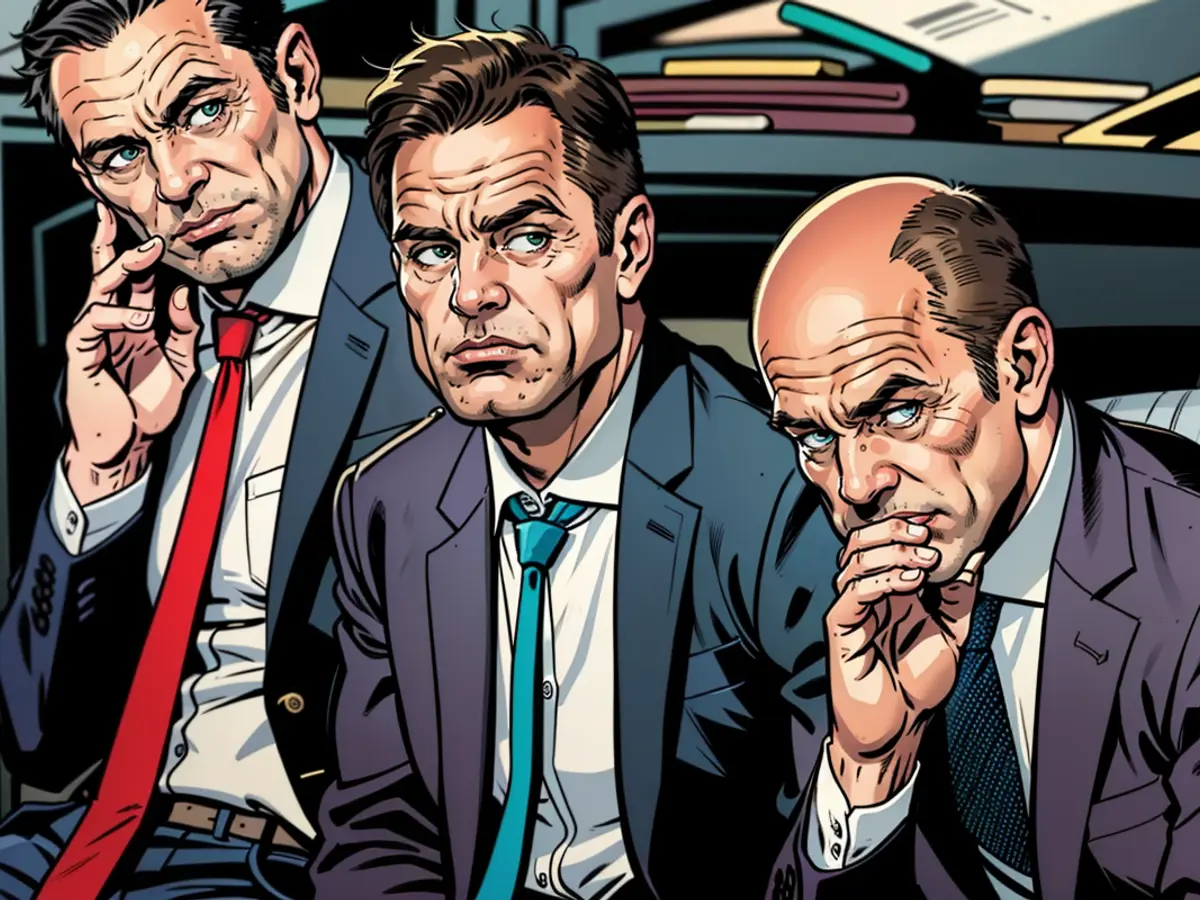Coalition dispute - Final spurt on the budget: agreement in sight or more noise?
In the bitter dispute over the federal budget 2025, time is running out. The SPD is putting pressure and wants clarity about the government's budget plans by Friday. After that, the Bundestag members will recess for the summer break. The faction has scheduled a special session for 7:00 am on Friday. It remains questionable whether Federal Chancellor Olaf Scholz (SPD), Finance Minister Christian Lindner (FDP), and Economics Minister Robert Habeck (Greens) will reach an agreement by then.
Night session for consensus before Friday?
The three-party coalition has been in intensive negotiations for weeks over the budget for the coming year. Originally, they wanted to be finished by the previous Wednesday. The cabinet decision is now being discussed for July 17th. To keep this deadline, a consensus meeting is necessary in the coming days because the drafting of the budget law usually takes about ten days. Therefore, it is expected that the negotiations will last into the night today.
The individual budget items have been largely agreed upon, but the social budget is reportedly still controversial. In addition, there is still a billion-dollar gap that needs to be closed. This also includes possible cuts in the Climate and Transformation Fund – from this special pot, the federal government finances projects for more climate protection.
Scholz remains optimistic about the timeline
Federal Chancellor Scholz appeared optimistic in the Bundestag yesterday that the cabinet would pass a budget plan by the end of the month. He did not specify an exact date for this. It remains that "we will pass the budget in this month in the federal cabinet as planned," said the SPD politician. The Bundestag usually debates the budget after the summer break until the end of the year. "There will be no disruption to this schedule."
Economics Minister Robert Habeck (Greens) called on the coalition partners for compromise. "We need to nail this down now," he said.
Perennial contentious issue debt brake
The SPD is pushing for the debt brake to be suspended again to have more room for investments. The Greens are also open to additional credits. For the FDP and Finance Minister Lindner, this is a taboo. "The debt brake must be observed, because it is constitutionally mandated and a question of intergenerational fairness," said General Secretary Bijan Djir-Sarai to the German Press Agency.
For the FDP, speed in the negotiations is not a priority. "Thoroughness and a good result are more important in the federal budget, because in the end, the entire package must pass," said Djir-Sarai.
Vice Chancellor Habeck urged everyone to "go to their pain thresholds" and "sometimes go a meter beyond." Setbacks or predetermined decisions would not help, he emphasized. The budget consultation must also be read against the political background, which is greater than party political decisions.
How it could continue
With their announced special session, the SPD has increased the pressure on the coalition partners. In addition, Scholz's timeline is in the way of further negotiation deadlines: On Friday, it goes for Scholz to the UEFA European Football Championship quarterfinals in Stuttgart to the stadium, where Germany plays against Spain; from Tuesday, he is at the NATO summit in Washington.
If the opposing parties come to an agreement, the draft will be forwarded to the Bundestag. The budget experts in the factions need almost the entire summer to work through the several thousand pages. After that, the parliamentary procedure begins – and with it, a new, month-long fight over millions and billions for projects. The final word on the budget lies with the parliament. The final decision is usually made in a budget week in December.
- Despite the SPD pushing for clarity on the budget plans by Friday, it's uncertain if Federal Chancellor Olaf Scholz, Finance Minister Christian Lindner, and Economics Minister Robert Habeck will reach an agreement in time.
- To keep the deadline of July 17th for the cabinet decision, a consensus meeting is necessary due to the drafting process of the budget law taking about ten days.
- Night sessions are likely to continue as the SPD, FDP, and Greens negotiate the remaining controversial issues, including the social budget and a billion-dollar gap.
- Federal Chancellor Scholz remained optimistic about the timeline, stating that they will pass the budget by the end of the month as planned, but did not specify a date.
- Economics Minister Robert Habeck called on the coalition partners for compromise, emphasizing the need to "nail this down now."
- For the FDP, the priority is thoroughness and a good result in the negotiations, with the debt brake being a constitutional mandate they cannot compromise on.
- If an agreement is reached, the draft will proceed to the Bundestag, where budget experts will spend the summer working through the several thousand pages, followed by another month-long fight over budget allocations, with the final decision likely in a budget week in December.








